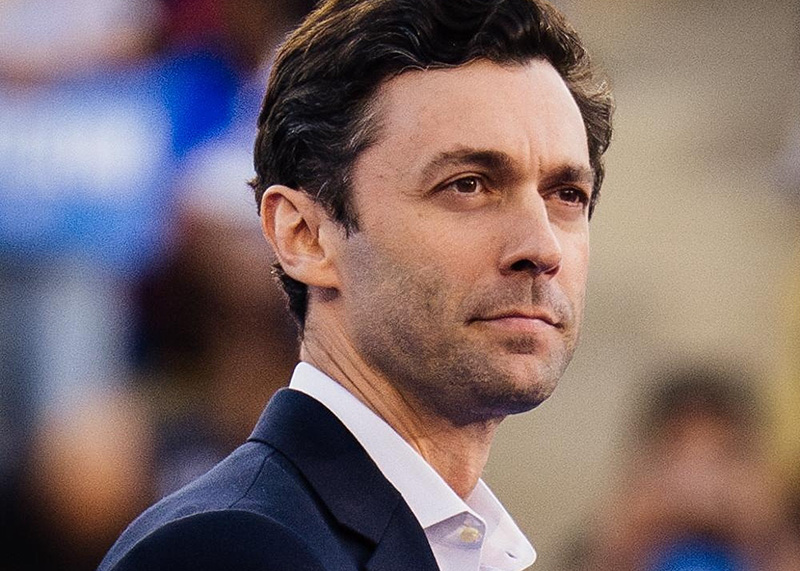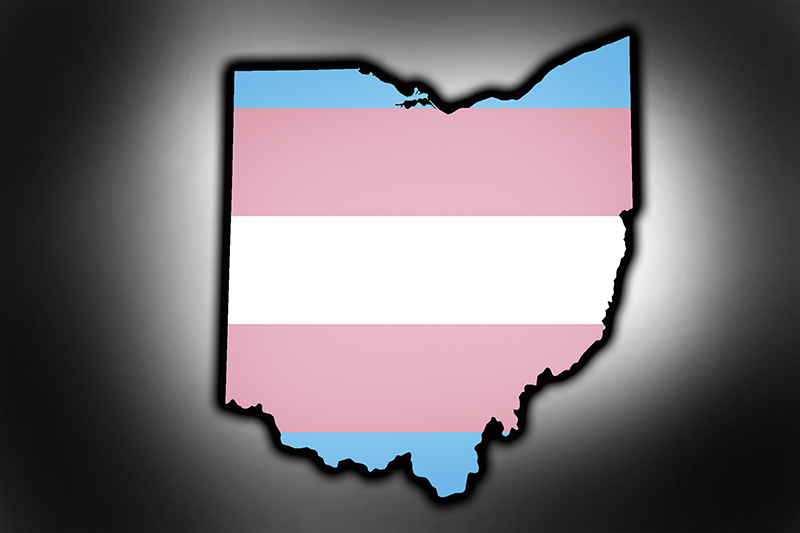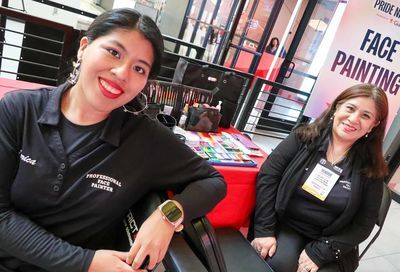Frank Talk
Barney Frank's decades-long House career has come to a close, but the gay firebrand is far from retiring
Interview by Justin Snow
Photography by Todd Franson
January 17, 2013
Barney Frank is office-less a few hours after the Jan. 3 swearing-in ceremony for the 113th Congress, having moved out of the large office he once occupied in the Rayburn House Office Building a few weeks earlier. The 73-year-old former congressman holds a folded newspaper under his arm and shuffles into a largely hidden room in the rotunda of the Cannon House Office Building.
It is a bittersweet day for the Massachusetts Democrat. Thirty-two years earlier, he was sworn in as the representative for Massachusetts’s 4th District. Eight years before that, he was sworn into the Massachusetts House of Representatives.

Barney Frank
(Photo by Todd Franson)
For the first time in 40 years, Barney Frank holds no public office. But talking about the future of the LGBT-rights movement and American politics he shows no signs of fading quietly. Although he says he’ll miss the drafting of legislation and passing of laws, Frank is looking forward to his own form of retirement, which, he says, will include public speaking and a couple books.
”I’m looking forward to working less hard and being under less pressure and having less tension,” Frank says. ”I’m just tired and my energy is gone,” he adds, attributing the four years of the financial crisis that he witnessed from his post on the House Financial Services Committee as contributing to his exhaustion.
Frank’s place in the history of the gay-rights movement is indisputable. The first member of Congress to voluntarily come out as gay, in 1987, Frank earned a reputation on Capitol Hill for his quick wit, understanding of financial affairs and ferocious liberalism. He was a champion of the Employment Non-Discrimination Act in the House, with his Massachusetts colleague Ted Kennedy leading the charge in the Senate.
As he notes, his political career has largely paralleled the gay-rights movement, having first been elected to public office a few years after the Stonewall Riots. Frank is in many ways a politician from a different era, and he leaves office at a time when momentum is truly on the side of equality.
With the largest number of out lawmakers to ever serve in Congress and the most LGBT-friendly president in American history set to be sworn in for a second term Jan. 21, Frank reflects on what’s been accomplished, and what’s still to come.
METRO WEEKLY: Are you glad to be done?
BARNEY FRANK: Yes. This is voluntary, my decision to leave. I’ve been back and forth. In 2010, I thought I wouldn’t run again. I thought I’d have one more term. I was too tired and doing full-time politics either for myself or for other political people since October of 1967. And I’m married and look forward to time with Jim.
And then when the Republicans took the House back I said, ”Well, if I leave now it’ll look like I’m being a sorehead that I wouldn’t stay as financial chairman.” And so I was going to do only one more term and then they changed the congressional districts and my problem was they changed the district I would be representing so drastically that I would’ve been going to 325,000 new people to ask them to vote for me as their member of Congress for one term. And I couldn’t do that. I think party responsibility is to work on people’s problems and issue and you can’t say, ”You know what, vote for me. But, by the way, if a problem arises 18 months from now I won’t be able to do much about it because I’ll be gone six months after that.” So it accelerated and then once that happened I’ve been very happy. I’ve been looking forward to doing other things.
And on the positive side, I want to write. I have a great respect for the written word. Some people can write while they’re doing other things. Former Sen. [Daniel Patrick] Moynihan could do that — a great senator and great author. I can’t do that. So I now will have a major opportunity to write a couple of books. I’m looking forward to that.
MW: What’s the first book?
FRANK: First book is about what liberalism should be. Basically, I believe we should acknowledge that of the two parties we are the ones that understand the positive role that government can play in our lives. And we need to figure out how to get people to understand that better.
The second thing will be a history of the political activity around here. Accidentally, my political career and the gay-rights movement are exactly the same age. I got elected to the state Legislature in 1972 — three years after Stonewall. I rode in, as a candidate, the second gay-pride parade in Boston history in 1972. I filed the first gay-rights legislation in Massachusetts in 1972 and Massachusetts was probably the fourth or fifth state to do that. And I got here in 1981 and I have been on the floor as a member of the House for every debate and vote on LGBT rights ever, so I want to write about that.
READ NEXT
WATCH: Ad Attacks Senator Over Trans Athlete Vote
A Republican super PAC is attacking U.S. Sen. Jon Ossoff for refusing to support a bill to enshrine a transgender sports ban into law.
By John Riley on April 8, 2025 @JRileyMW
The Republican Senate Leadership Fund is spending over a million dollars to air an ad attacking Sen. Jon Osssoff (D-Ga.) over the issue of transgender participation in sports.
The conservative super PAC's ad highlights the senator's opposition to the "Fair and Safe Athletic Opportunities Act," a congressional bill seeking to enshrine into law a ban that would prohibit transgender athletes from competing on female-designated sports teams.
The bill sought to amend Title IX, a federal law prohibiting sex discrimination in government-funded schools, to explicitly prohibit schools from allowing transgender women and girls to compete as females.
Hairdressers Could Be Sued Under This Anti-Transgender Bill
A proposed anti-trans law in Arkansas could potentially permit parents to sue hairdressers for giving minors a gender-nonconforming haircut.
By John Riley on March 26, 2025 @JRileyMW
A proposed bill in Arkansas would criminalize anyone who is believed to have supported the social transition of transgender youth.
The bill's prohibitions are so broad, in fact, that it could lead to the prosecution of hairdressers who give youth haircuts that don't conform to stereotypical gender norms.
Under the Vulnerable Youth Protection Act, any person found to have affirmed the gender identity of a minor that does not match the minor's assigned sex at birth could be sued by that minor or their parents for at least $10,000, plus compensatory damages and attorney's fees, for up to 20 years afterward.
Ohio Ban on Trans Youth Treatments Blocked by Court
An Ohio appeals court has prohibited the state from enforcing its ban on medical care for trans youth, declaring it unconstitutional.
By John Riley on March 22, 2025 @JRileyMW
An Ohio law prohibiting transgender youth from accessing gender-affirming care has been declared unconstitutional by a state appeals court. The court has permanently blocked officials from enforcing the ban.
On March 18, a three-judge panel of the state's 10th District Court of Appeals overturned a lower court's ruling that allowed the state to enforce the ban, reported NBC News.
The ban on gender-affirming care -- which passed along with a ban on transgender women and girls from participating on female-designated sports teams -- was passed in late 2023 but was later vetoed by Republican Gov. Mike DeWine.
Support Metro Weekly’s Journalism
These are challenging times for news organizations. And yet it’s crucial we stay active and provide vital resources and information to both our local readers and the world. So won’t you please take a moment and consider supporting Metro Weekly with a membership? For as little as $5 a month, you can help ensure Metro Weekly magazine and MetroWeekly.com remain free, viable resources as we provide the best, most diverse, culturally-resonant LGBTQ coverage in both the D.C. region and around the world. Memberships come with exclusive perks and discounts, your own personal digital delivery of each week’s magazine (and an archive), access to our Member's Lounge when it launches this fall, and exclusive members-only items like Metro Weekly Membership Mugs and Tote Bags! Check out all our membership levels here and please join us today!
The Magazine
-
Most Popular
 MISTR's Free DoxyPEP Leads to Huge Drop in STI Rates
MISTR's Free DoxyPEP Leads to Huge Drop in STI Rates  Signature Honors Mandy Patinkin in Emotional Celebration
Signature Honors Mandy Patinkin in Emotional Celebration  Gay Army Reserve Officer in Uniform Sex Video Scandal
Gay Army Reserve Officer in Uniform Sex Video Scandal  'Gray Pride' Protests Hungary's Ban on Gay Pride Marches
'Gray Pride' Protests Hungary's Ban on Gay Pride Marches  Sarah Snook is Astonishing in Broadway's 'Dorian Gray'
Sarah Snook is Astonishing in Broadway's 'Dorian Gray'  Hugh Bonneville Delivers a Show-Stopping Vanya
Hugh Bonneville Delivers a Show-Stopping Vanya  Becca Balint: The Pride of Vermont
Becca Balint: The Pride of Vermont  Air Force Reverses Ban on Pronouns in Email Signatures
Air Force Reverses Ban on Pronouns in Email Signatures  Jared Polis Signs Law Repealing Colorado's Gay Marriage Ban
Jared Polis Signs Law Repealing Colorado's Gay Marriage Ban  A Potent (and Pricey) 'Good Night, And Good Luck'
A Potent (and Pricey) 'Good Night, And Good Luck'
 Becca Balint: The Pride of Vermont
Becca Balint: The Pride of Vermont  Signature Honors Mandy Patinkin in Emotional Celebration
Signature Honors Mandy Patinkin in Emotional Celebration  MISTR's Free DoxyPEP Leads to Huge Drop in STI Rates
MISTR's Free DoxyPEP Leads to Huge Drop in STI Rates  A Potent (and Pricey) 'Good Night, And Good Luck'
A Potent (and Pricey) 'Good Night, And Good Luck'  Sarah Snook is Astonishing in Broadway's 'Dorian Gray'
Sarah Snook is Astonishing in Broadway's 'Dorian Gray'  'Gray Pride' Protests Hungary's Ban on Gay Pride Marches
'Gray Pride' Protests Hungary's Ban on Gay Pride Marches  Jared Polis Signs Law Repealing Colorado's Gay Marriage Ban
Jared Polis Signs Law Repealing Colorado's Gay Marriage Ban  White House Ignores Reporters with Pronouns in Email Signatures
White House Ignores Reporters with Pronouns in Email Signatures  White House Demands NIH Study Transgender Transition "Regret"
White House Demands NIH Study Transgender Transition "Regret"  Air Force Reverses Ban on Pronouns in Email Signatures
Air Force Reverses Ban on Pronouns in Email Signatures
Scene
Metro Weekly
Washington's LGBTQ Magazine
P.O. Box 11559
Washington, DC 20008 (202) 638-6830
About Us pageFollow Us:
· Facebook
· Twitter
· Flipboard
· YouTube
· Instagram
· RSS News | RSS SceneArchives
Copyright ©2024 Jansi LLC.








